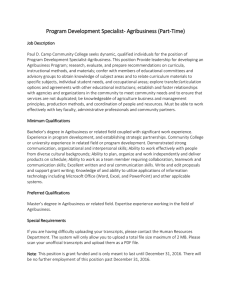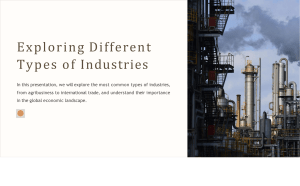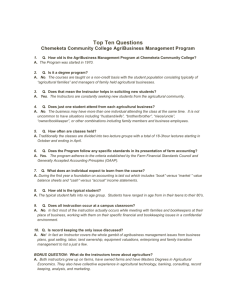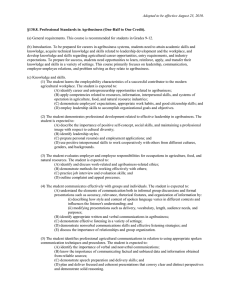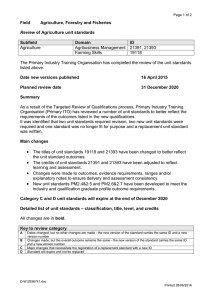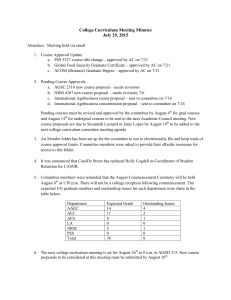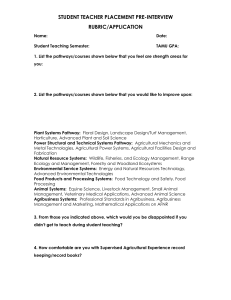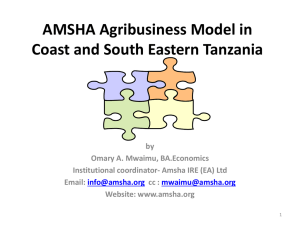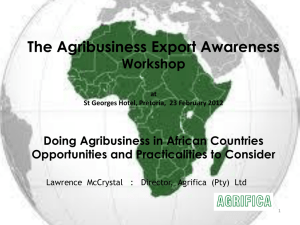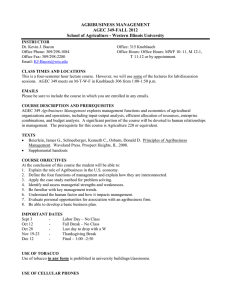African Agriculture Module
advertisement
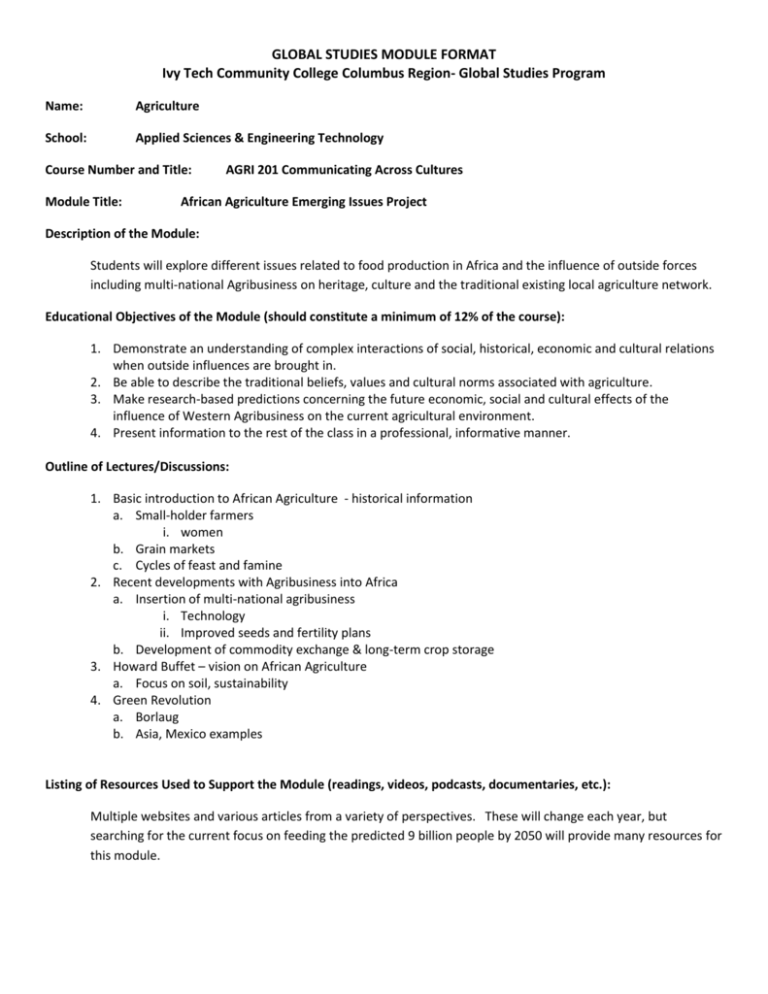
GLOBAL STUDIES MODULE FORMAT Ivy Tech Community College Columbus Region- Global Studies Program Name: Agriculture School: Applied Sciences & Engineering Technology Course Number and Title: Module Title: AGRI 201 Communicating Across Cultures African Agriculture Emerging Issues Project Description of the Module: Students will explore different issues related to food production in Africa and the influence of outside forces including multi-national Agribusiness on heritage, culture and the traditional existing local agriculture network. Educational Objectives of the Module (should constitute a minimum of 12% of the course): 1. Demonstrate an understanding of complex interactions of social, historical, economic and cultural relations when outside influences are brought in. 2. Be able to describe the traditional beliefs, values and cultural norms associated with agriculture. 3. Make research-based predictions concerning the future economic, social and cultural effects of the influence of Western Agribusiness on the current agricultural environment. 4. Present information to the rest of the class in a professional, informative manner. Outline of Lectures/Discussions: 1. Basic introduction to African Agriculture - historical information a. Small-holder farmers i. women b. Grain markets c. Cycles of feast and famine 2. Recent developments with Agribusiness into Africa a. Insertion of multi-national agribusiness i. Technology ii. Improved seeds and fertility plans b. Development of commodity exchange & long-term crop storage 3. Howard Buffet – vision on African Agriculture a. Focus on soil, sustainability 4. Green Revolution a. Borlaug b. Asia, Mexico examples Listing of Resources Used to Support the Module (readings, videos, podcasts, documentaries, etc.): Multiple websites and various articles from a variety of perspectives. These will change each year, but searching for the current focus on feeding the predicted 9 billion people by 2050 will provide many resources for this module. Description of the Assignments Used to Facilitate an Understanding of the Module Objectives (writings, interviews, reflections, experiential projects or field work): Students will be choose (or be assigned) groups that will be given a specific area of Africa to research and understand the specific historical, cultural and social context particularly related to food and agriculture. They will also search out organizations (NGO’s, for-profit businesses, government and international agencies that are having an impact or have had an impact on food production. Students will be expected to relate their findings to historical agricultural events in the US. Based on information learned and discovered, students will present their impressions of the future of food production and its effect on culture, social structure the economy in their assigned region based on comparison to historical events in other parts of the world and the research they have completed. There will be a written grade and an oral presentation grade. Students will also develop a written outline to provide to other classmates explaining their presentation and research findings. Evaluation/Testing Used to Assess the Comprehension of the Module: A rubric will be used to evaluate completeness of work. Students will be given an exam based on the outlines provided by each group. Resources (Bibliography) used to Develop/implement the Module:
